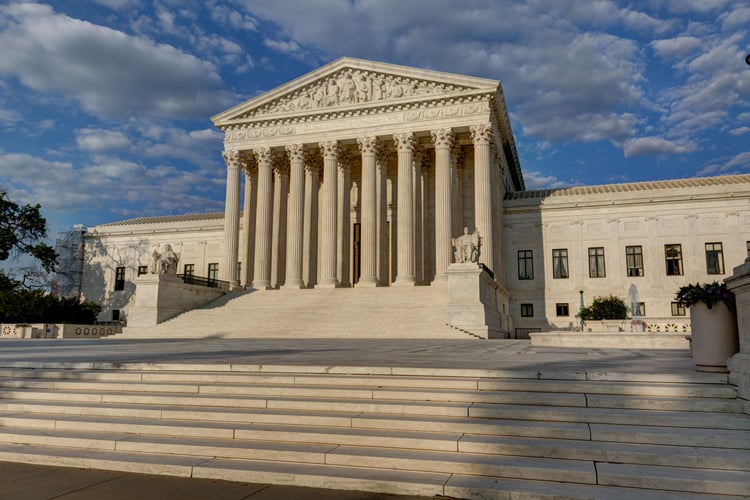Op-ed: Ethics code for Supreme Court would hold justices accountable in court of public opinion

Image from Shutterstock.
The first bill introduced in the U.S. House of Representatives this year would require an ethics code for the U.S. Supreme Court.
Supreme Court justices are the only judges in the nation who don’t have a written code of ethics, according to a Slate op-ed by Northwestern University Pritzker School of Law professor Steven Lubet. Every other member of the federal judiciary is covered by the Code of Conduct for United States Judges, which was based on the ABA’s Model Code of Judicial Conduct. Every state has adopted some version of the ABA code.
The bill, HR 1, is known as the For the People Act, and it covers several government-integrity issues. House Democrats have repeatedly introduced legislation requiring an ethics code for the top court, but House Republican leadership didn’t allow a floor vote, Lubet said. Democrats now control the House.
Lubet likes the idea of a Supreme Court ethics code. It could address issues such as: Can justices criticize political candidates? May they speak at meetings of partisan political organizations? Can they vacation with litigants during a pending case? Can they comment on issues or proceedings in the lower courts? Can clerks and court staff be assigned to work on justices’ books and memoirs?
“These are not hypotheticals,” Lubet wrote. “At least one justice has engaged in each of these activities in past years, and there is no definitive code of conduct that prohibits them.”
Lubet takes issue with Chief Justice John G. Roberts Jr.’s assertion that there is no reason to apply the judicial ethics code to the high court, made in his 2011 Year-End Report on the Federal Judiciary. Roberts had said the justices consult the ethics code, but it doesn’t answer questions unique to the Supreme Court. As a result, justices consult a wide variety of other materials to resolve specific ethics issues. “At the end of the day,” Roberts wrote, “no compilation of ethical rules can guarantee integrity.”
Lubet said the chief justice’s observations are reasonable, but they would apply to other courts—and they have ethics codes. A new code also could address issues that are “unique to the Supreme Court,” Lubet wrote.
Lubet noted that Supreme Court justices can’t be sanctioned under an ethics code because they have life tenure. But the adoption of Supreme Court ethics standards would hold justices accountable for their conduct “in the court of public opinion,” he wrote.
Violation of the code could, in extreme circumstances, be relevant in an impeachment proceeding, Lubet wrote. “But even without such a drastic and improbable situation, there is value in transparency. It is only fair to let the public know what ethics standards we should expect from the nine most powerful judges in the nation,” Lubet said.
Write a letter to the editor, share a story tip or update, or report an error.


